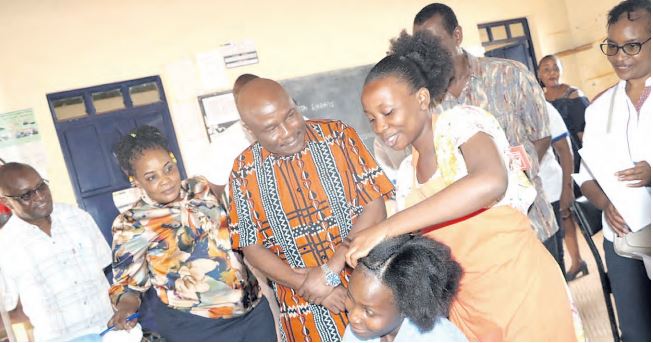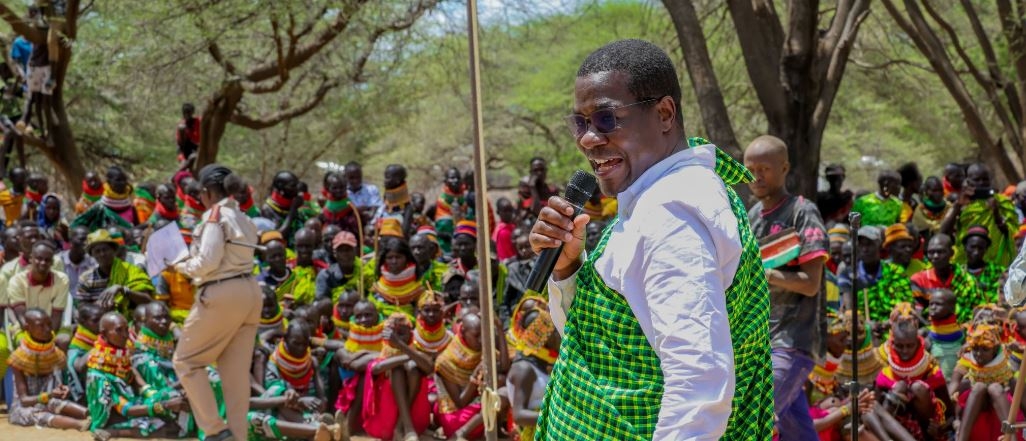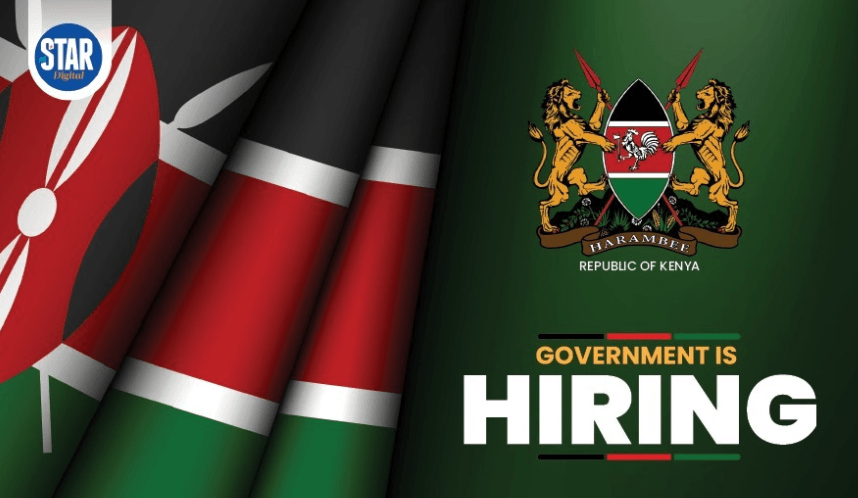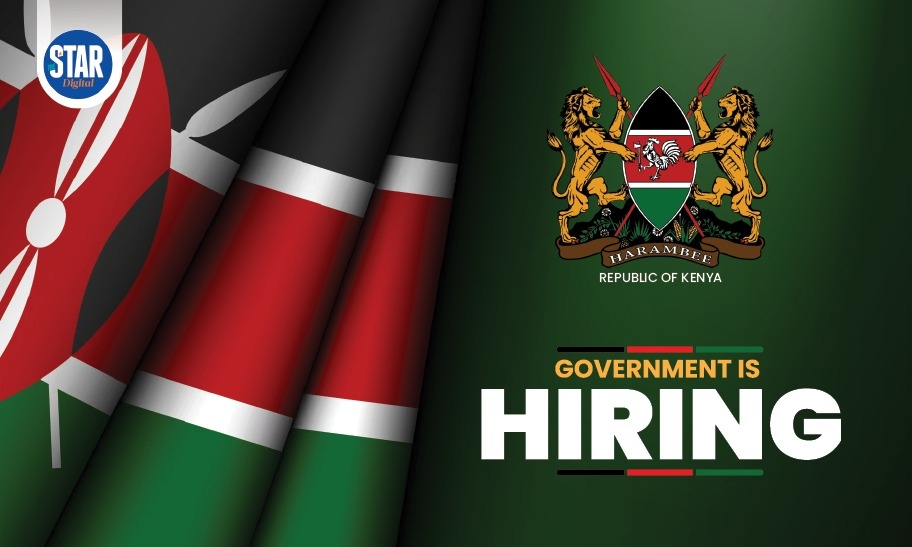

The government has embarked on a bold mission to address youth unemployment, a deeply entrenched issue that threatens to undermine the aspirations of an entire generation.
This transformative journey, championed by the State Department for Labour and Skills Development, represents a historic shift in bridging the skill gaps that have long separated Kenya’s educated youth from meaningful employment.
The recent rollout of comprehensive policies and initiatives offers a pathway to a future where the potential of Kenya’s young people is fully realized, reshaping the nation’s economic landscape.
At the core of these reforms is the newly implemented National Skills Development Policy, a policy designed to directly address the disconnect between skills imparted in schools and universities and those required by employers.
For years, this misalignment has left graduates struggling to find jobs and employers citing a shortage of relevantly skilled professionals.
The National Skills Development Policy introduces a robust framework that recalibrates Kenya’s education and training system to respond more accurately to the labour market’s evolving demands.
By focusing on human capital development and ensuring Kenyan youth gain the expertise necessary to thrive in a competitive, knowledge-based economy, the policy is geared towards sustainable socio-economic development.
This initiative is complemented by the National Skills Inventory, a digital platform that provides a centralised repository of data on the skills available within the Kenyan labour market.
The inventory is designed to not only aid employers in identifying the skills they require but also to enable young jobseekers to locate opportunities tailored to their qualifications.
This dynamic matching of demand and supply is essential for aligning education outputs with real-world job opportunities, especially in a rapidly evolving global economy where technological advancements constantly redefine skill requirements.
The Kenyan government is also prioritizing practical learning through the National Work-Based Learning Policy, which promotes on the-job training experiences, including internships and apprenticeships.
This policy recognizes that classroom instruction alone cannot prepare students for the demands of today’s job market.
By incorporating hands-on experience, the policy ensures that young Kenyans are equipped with both theoretical knowledge and practical expertise, making them more adaptable to industry needs.
Furthermore, Kenya’s 1 Million Next Level Initiative illustrates the government’s commitment to empowering one million young people over the next few years.
This programme leverages public-private partnerships, enabling training programmes to incorporate the most up-to-date industry practices and insights, aligning curriculum content with real-world applications.
To further strengthen youth employability, the National Policy Framework on Career Guidance provides a lifelong career development approach.
This policy emphasises the importance of guiding youth in making informed educational and career choices from an early age.
Career guidance programmes embedded in schools and tertiary institutions are vital for nurturing employability skills, fostering social equity and ensuring that every young person has access to quality information on available career paths and future job market trends.
The framework aligns career guidance services with emerging job sectors, such as digital technologies, creative industries and non-traditional fields that offer new opportunities for Kenya’s youth.
One of the government’s standout achievements is its integration of industry stakeholders into the educational process.
The National Policy on Linking Industry to Education, Training and Research establishes close collaboration between academic institutions and various economic sectors.
Recognising that industries possess in-depth knowledge of current and emerging skills in their fields, Kenya’s government has set up 12 National Sector Skills Committees in sectors including agriculture, engineering, tourism, ICT and creative arts.
These committees, representing local and global industry standards, are tasked with specifying sectoral skills development priorities, identifying occupational standards and informing curriculum development.
Drawing inspiration from successful models in countries like Germany and the United Kingdom, Kenya’s Sector Skills Committees mitigate the long-standing misalignment between educational outcomes and workforce demands, thus ensuring that Kenyan graduates are not only well-qualified but also job-ready.
Moreover, in response to Kenya’s high youth unemployment rate, the government has strategically expanded opportunities for Kenyan youth to work abroad.
This component of the ministry’s efforts involves negotiating bilateral labour agreements with nations such as Germany, Canada, and Saudi Arabia, opening pathways for employment in healthcare, security, transportation and technical fields.
These overseas opportunities represent a significant step forward, not just for employment but also for earning foreign income.
Diaspora remittances have proven to be a crucial economic asset, reaching Sh559.57 billion in 2023, a figure that has now eclipsed the revenue from traditional exports like tea and horticulture.
To ensure that Kenyan youth are well-prepared for these overseas roles, the Ministry of Labour has collaborated with the National Youth Service to offer pre-deployment training that prepares candidates for work in foreign countries.
This training addresses the technical skills required for their roles and the cultural nuances they may encounter, ensuring they are not only technically competent but also culturally adaptable.
Notably, the partnership with Germany focuses on enhancing technical skill sets in demand, while Canada offers promising avenues in healthcare.
These initiatives include labour protections, ensuring Kenyan workers are treated fairly and shielded from potential exploitation in their host countries.
Kenya’s demand-driven skills development model seeks not just to address unemployment but to produce a workforce capable of innovating and thriving in a global economy.
By positioning young people at the heart of its national growth strategy, the government is creating a blueprint for a resilient, future-oriented economy.
Kenya’s youth, now better equipped with skills and opportunities than ever before, stand ready to drive the nation forward, embodying the promise of a brighter and more prosperous Kenya.
Shadrack Mwadime is the Principal Secretary at the State Department of Labour.














